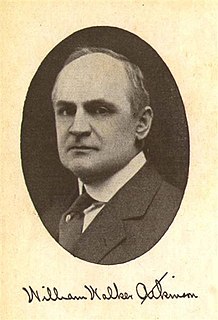A Quote by Paul Brunton
Now an extraordinary and helpful fact is that by making Mind the object of our attention, not only does the serenity which is its nature begin to well up of its own accord but its steady unchanging character itself helps spontaneously to repel all disturbing thoughts.
Related Quotes
When you are in accord with nature, nature will yield its bounty. This is something that is coming up in our own consciousness now...recognizi ng that by violating the environment in which we are living, we are really cutting off the energy and source of our own living. And it’s this sense of accord, so that living properly in relation to what has to be done in this world one fosters the vitality of the environment.
For us, mind has nature for its premise, being nature's truth and for that reason its absolute prius. In this truth nature has vanished, and mind has resulted as the idea arrived at being-for-itself, the object of which, as well as the subject, is the concept. This identity is absolute negativity, for whereas in nature the concept has its perfect external objectivity, this its alienation has been superseded, and in this alienation the concept has become identical with itself. But it is this identity therefore, only in being a return out of nature.
We are completely unaware of our true nature because we identify ourselves with our body, our emotions and our thoughts, thus losing sight of our unchanging centre, which is pure consciousness. When we return to our true nature, our thoughts and perceptions no longer appear as modifications of a single substance, they come into being and subside like waves of the ocean.
Temperance is love surrendering itself wholly to Him who is its object; courage is love bearing all things gladly for the sake of Him who is its object; justice is love serving only Him who is its object, and therefore rightly ruling; prudence is love making wise distinction between what hinders and what helps itself.
From where does this "I" arise? Seek for it within; it then vanishes. This is the pursuit of wisdom. When the mind unceasingly investigates its own nature, it transpires that there is no such thing as mind. This is the direct path for all. The mind is merely thoughts. Of all thoughts the thought "I" is the root.
We are sending out thoughts of greater or less intensity all the time, and we are reaping the results of such thoughts. Not only do our thought-waves influence ourselves and others, but they have a drawing power - they attract to us the thoughts of others, things, circumstances, people, 'luck', in accord with the character of the thought uppermost in our minds.
Nature consists of facts and of regularities, and is in itself neither moral nor immoral. It is we who impose our standards upon nature, and who in this way introduce morals into the natural world, in spite the fact that we are part of this world. We are products of nature, but nature has made us together with our power of altering the world, of foreseeing and of planning for the future, and of making far-reaching decisions for which we are morally responsible. Yet, responsibility, decisions, enter the world of nature only with us
Taught from their infancy that beauty is woman's sceptre, the mind shapes itself to the body, and, roaming round its gilt cage, only seeks to adorn its prison. Men have various employments and pursuits which engage their attention, and give a character to the opening mind; but women, confined to one, and having their thoughts constantly directed to the most insignificant part of themselves, seldom extend their views beyond the triumph of the hour.
If all we know of mind is the aspect of mind that dissolves when we die, we will be left with no idea of what continues, no knowledge of the new dimension of the deeper reality of the nature of mind. So it is vital for us all to familiarize ourselves with the nature of mind while we are still alive. Only then will we be prepared for the time when it reveals itself spontaneously and powerfully at the moment of death; be able to recognize it "as naturally," the teachings say, "as a child running into its mother's lap"; and by remaining in that state, finally be liberated.
Meditation is not a matter of trying to stop thinking or make your mind go blank but rather to realize when your attention is wandering and to simply let go of the thoughts and begin again. It is a way of changing our relationship to our thoughts, so we're not so consumed by them, with no sense of space. Having a newly spacious relationship to our thoughts brings both peace and freedom.
I keep trying to find ways to shift the viewer's attention away from the object they are looking at and toward their own perceptual process in relation to that object. The question for me always is: how can I make you aware of your own activity of looking, instead of losing your attention to thoughts about what it is that you are looking at?
Art is the microscope of the mind, which sharpens the wit as the other does the sight; and converts every object into a little universe in itself. Art may be said to draw aside the veil from nature. To those who are perfectly unskilled in the practice, unimbued with the principles of art, most objects present only a confused mass.








































